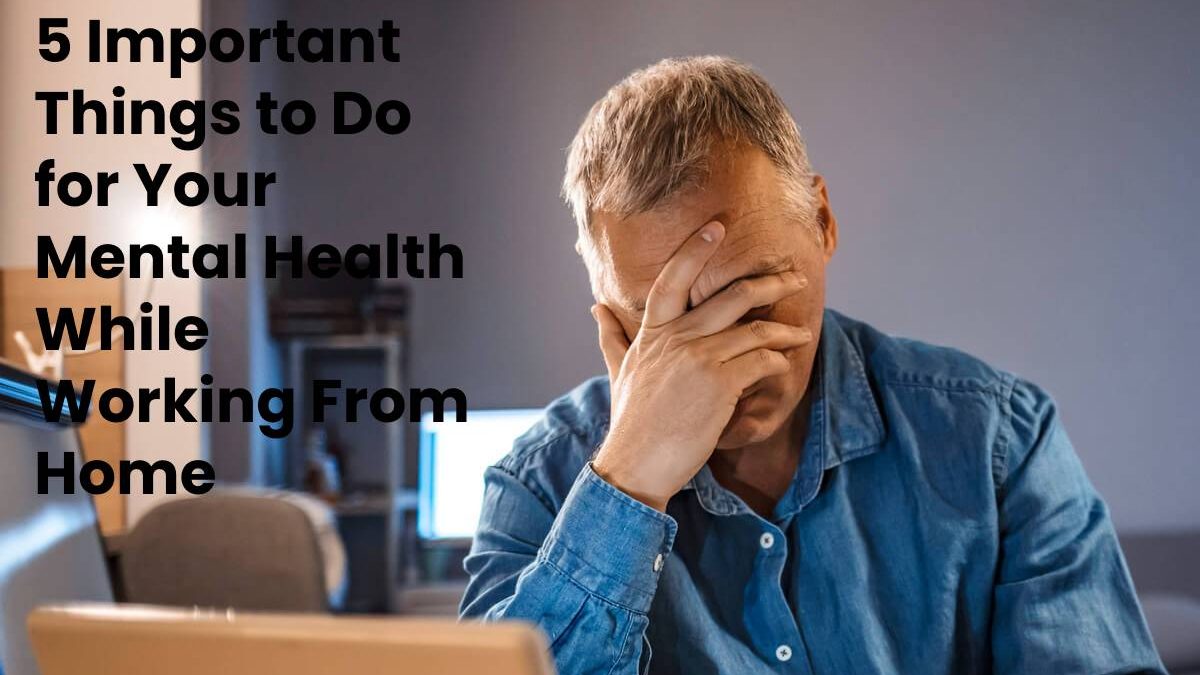Working from home is something that a lot more people are doing now. You might have started working from home due to the COVID-19 pandemic, but many companies have been moving toward remote work anyway. Some people have noted that working from home presents some mental health challenges. It can feel a lot different to work from home than it did when working in a standard office environment.
This is why it’s more important than ever to do what you can to improve your mental health. Read on to learn about five important things to do for your mental health while working from home. If you do these things, then you’ll have a much easier time staying positive and happy.
Table of Contents
1. Get a Good Night’s Rest
Getting a good night’s rest matters a lot more than you might think. Some people make the mistake of burning the midnight oil a bit too often, and this can come back to bite you eventually. Try to maintain a consistent schedule while working from home so that you won’t be trying to catch up on work too late in the day. Getting eight hours of sleep each night will be better for your mental health than having an erratic sleeping pattern.
2. Try to Exercise Often
Exercise is another thing that you need to focus on if you want to maintain good mental health. When you’re working from home, you’re not going to be getting exercise in some of the ways that you used to. This means that you’ll need to go out of your way to exercise at home so that you won’t start feeling sluggish. Exercising can boost your mental health and make you feel happier, and this will make you more productive at work.
You should try to schedule thirty minutes of exercise each day if possible. It’s definitely going to be good to exercise more than that if you can, but try to use thirty minutes of exercise as your base. It’s fine to exercise however you want to as well. Some people will go for walks to get some simple exercise in, but others will get more into rigorous fitness routines to try to realize fitness goals.
3. Take the Time to Talk to People
One of the biggest dangers of working from home is losing out on getting to socialize with people. You might get depressed due to not seeing your work friends any longer, but you can try to make an effort to talk to people. You should reach out to friends and family members so that you’ll have social contact. It’s never good to feel withdrawn or socially distant, and this is why you should take the time to talk to people.
Call people up and see how they’re doing. Make plans to go out and have fun when it’s safe to do so. Just avoid withdrawing yourself socially because it can negatively impact your mental health.
4. Make Healthy Food Choices
Making healthy food choices will also be important when you’re trying to maintain good mental health. You don’t want to fall into unhealthy habits because you’re working from home and you’re feeling down. Eat foods that will give you energy and make you feel more alert. Avoid junk food that will make you feel sluggish and cause you to gain weight.
5. Consider Speaking to an Online Therapist
Speaking to an online therapist might actually be very helpful if you’re having a tough time with your mental health. It’s normal to feel a bit depressed when your situation changes and you’ve become a remote worker. It takes time to adjust to new things like this, but you can get help by speaking to an online therapist. Visit https://www.mytherapist.com/advice/therapists/ to learn more about how you can get through even the toughest situations with the help of dedicated professionals.
Marie Miguel Biography
 Marie Miguel has been a writing and research expert for nearly a decade, covering a variety of health-
Marie Miguel has been a writing and research expert for nearly a decade, covering a variety of health-
related topics. Currently, she is contributing to the expansion and growth of a free online mental health
resource with MyTherapist.com. With an interest and dedication to addressing stigmas associated with
mental health, she continues to specifically target subjects related to anxiety and depression.
Related posts
Sidebar
Recent Posts
The Best Forex Brokers for Beginners
Since COVID-19 first popped up, interest in the forex market has increased dramatically. Knowing how to get involved with minimal…
Maximizing Success: The Symbiosis of Dedicated Software Development Teams and Product Design Services
The Symbiosis of Dedicated Software Development Teams and Product Design Services In the rapidly evolving landscape of technology, businesses aiming…



